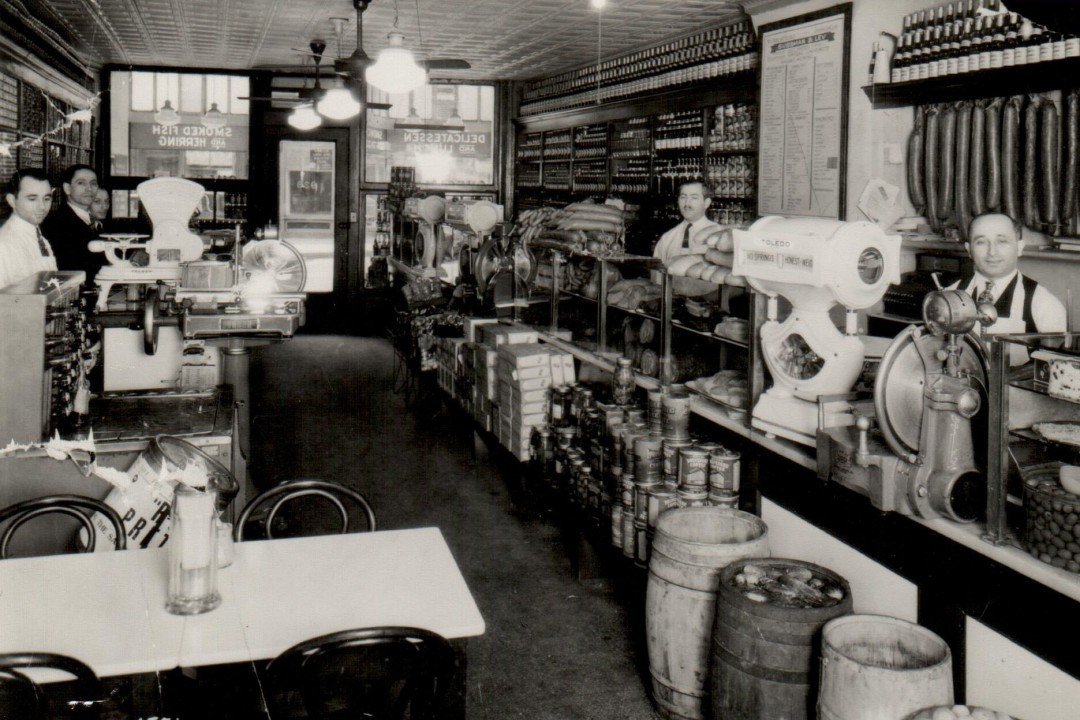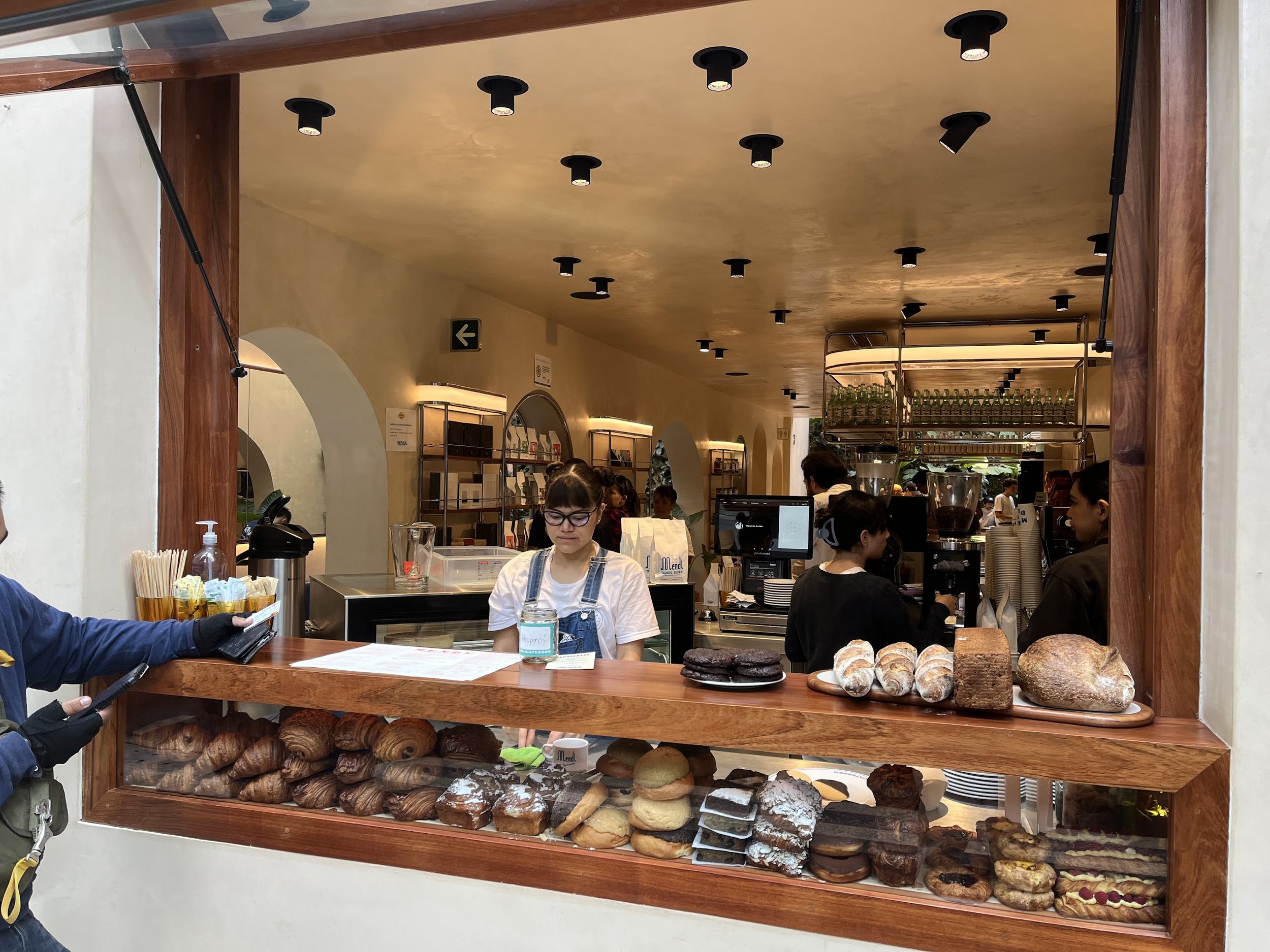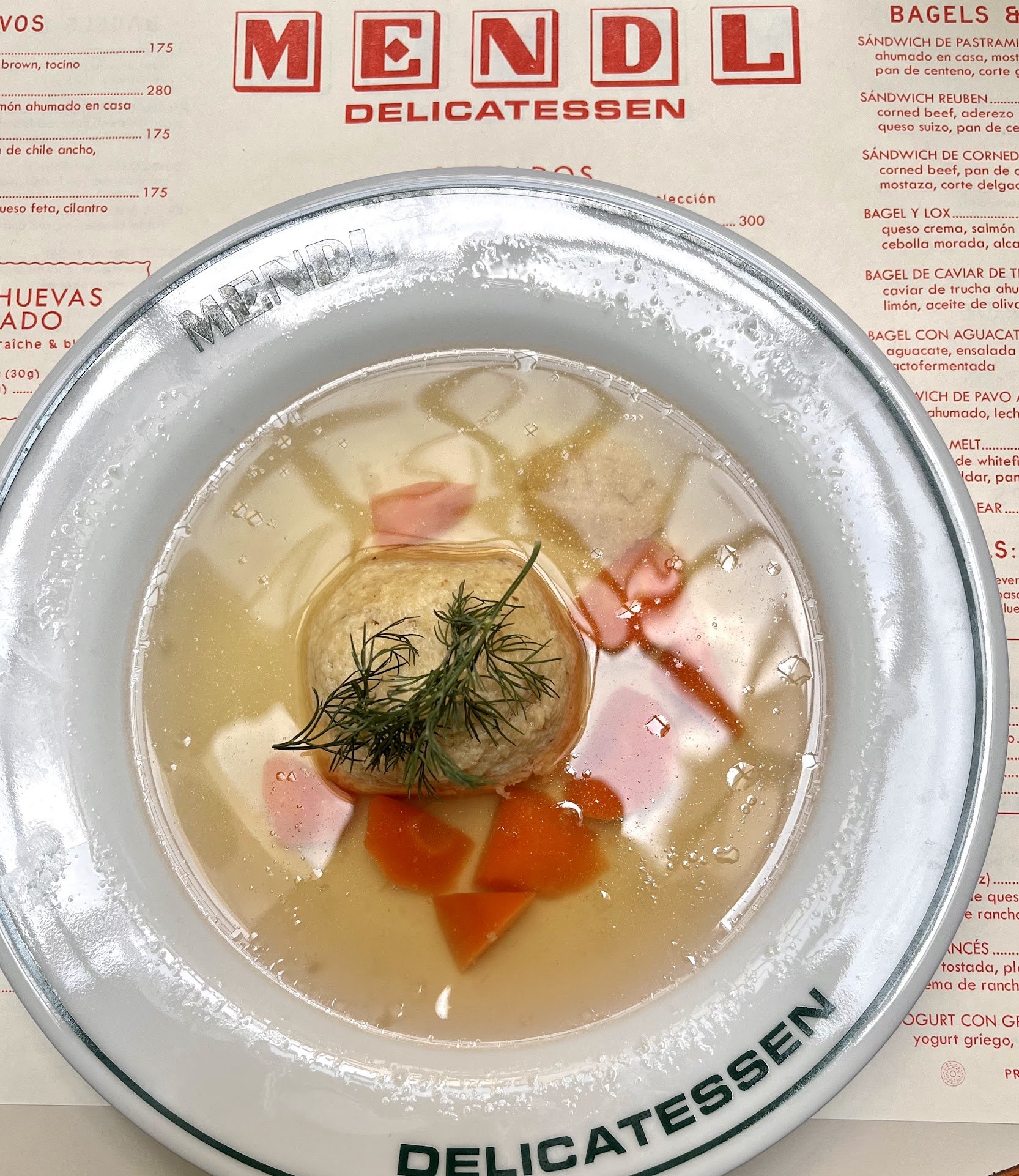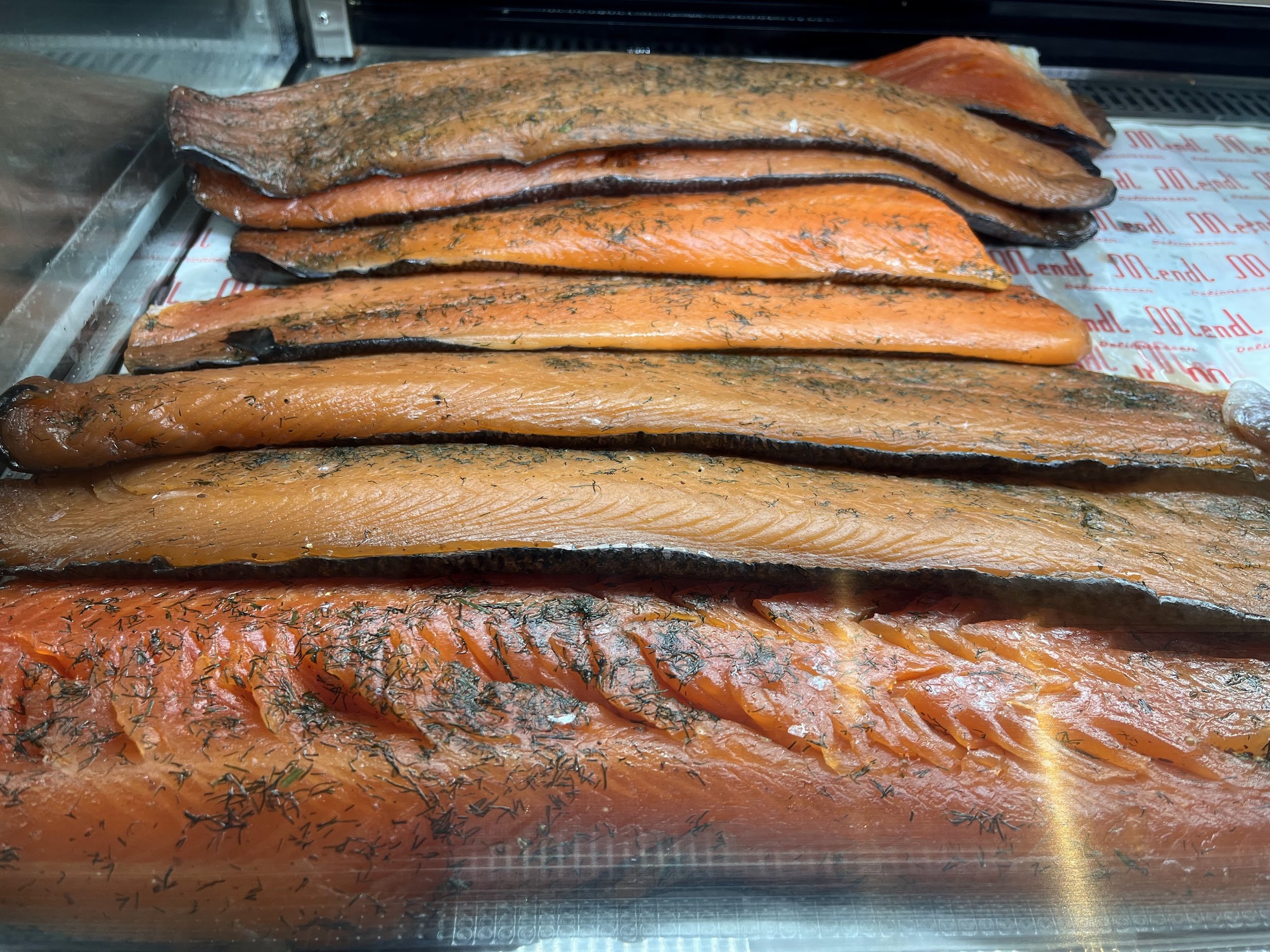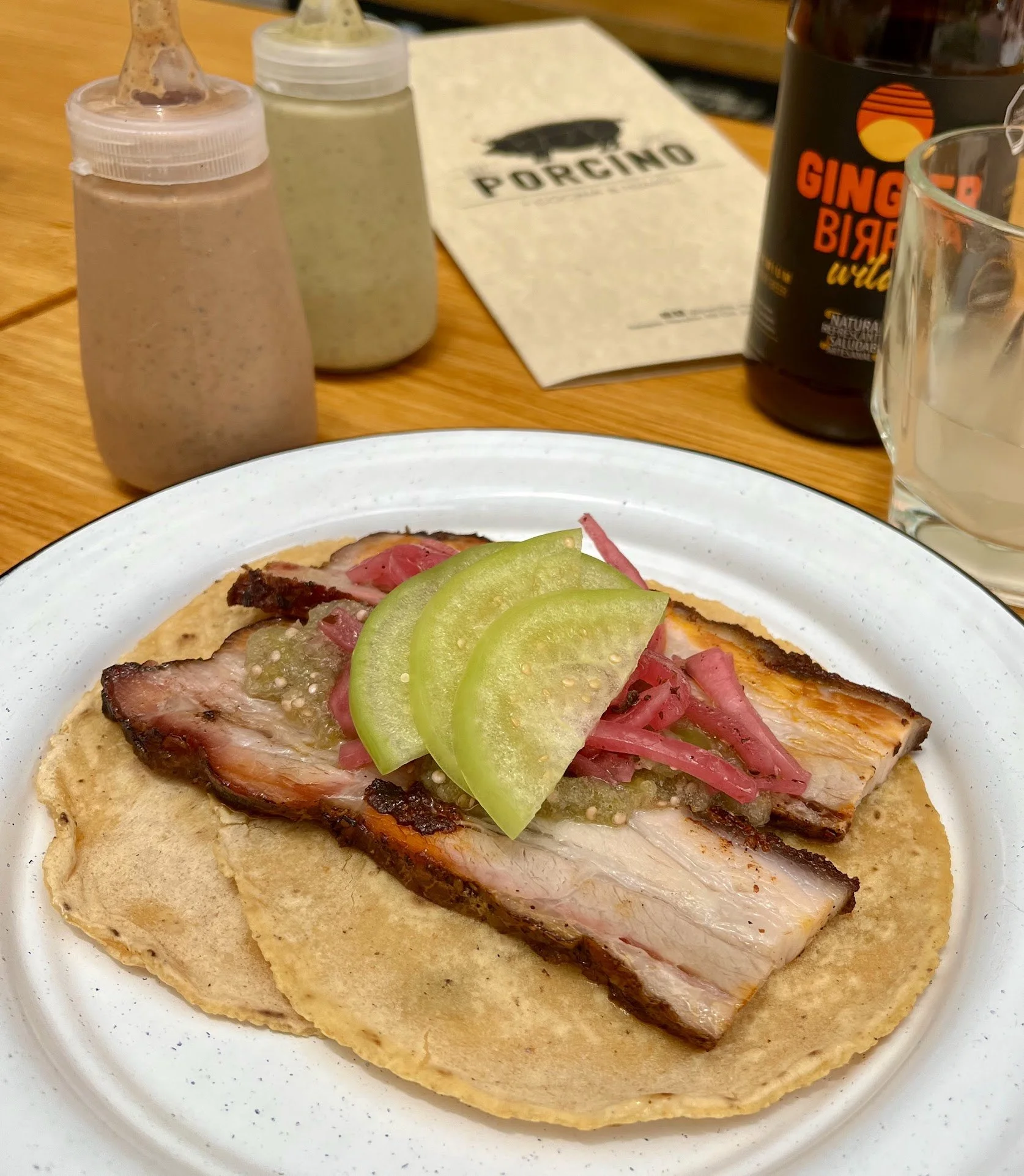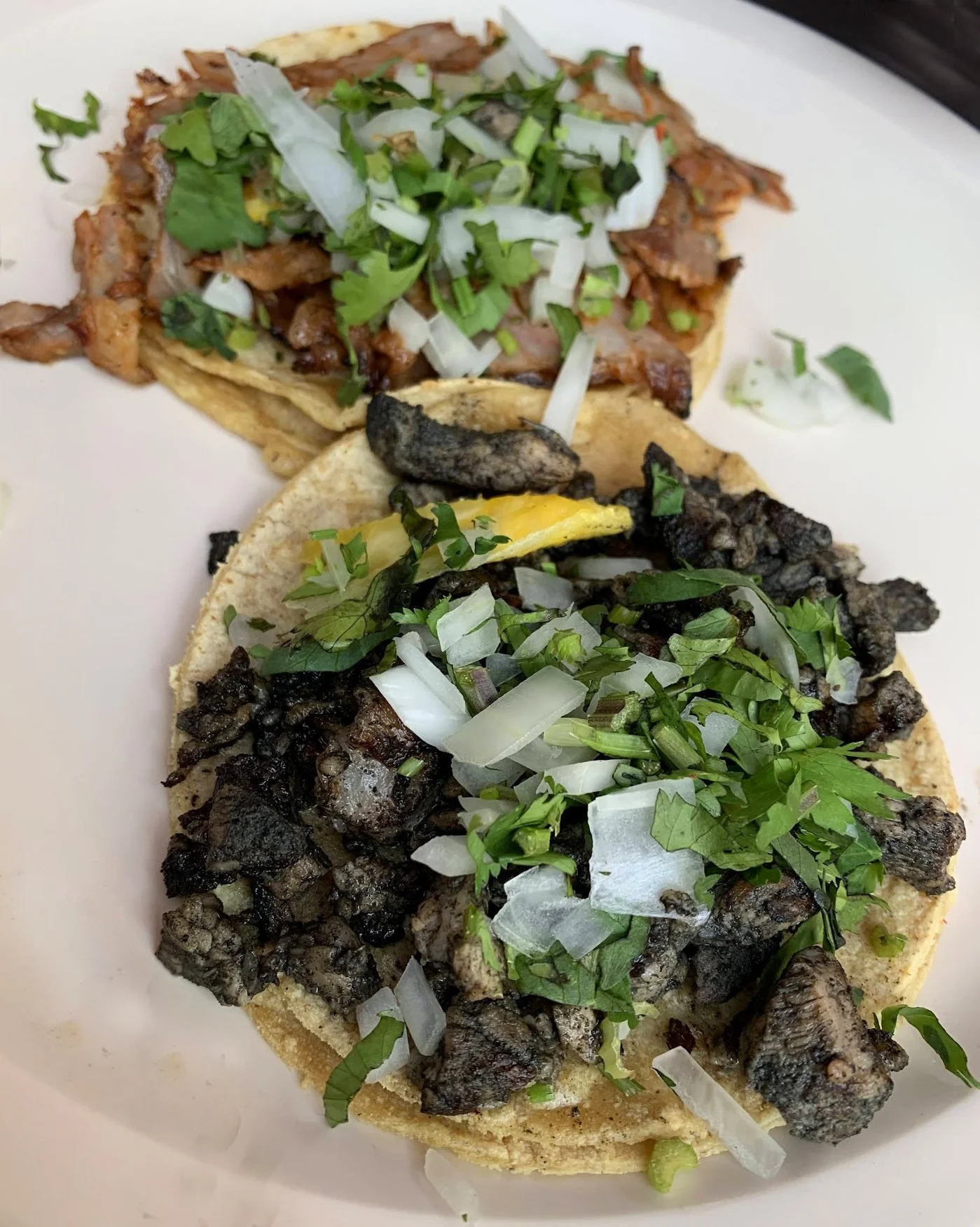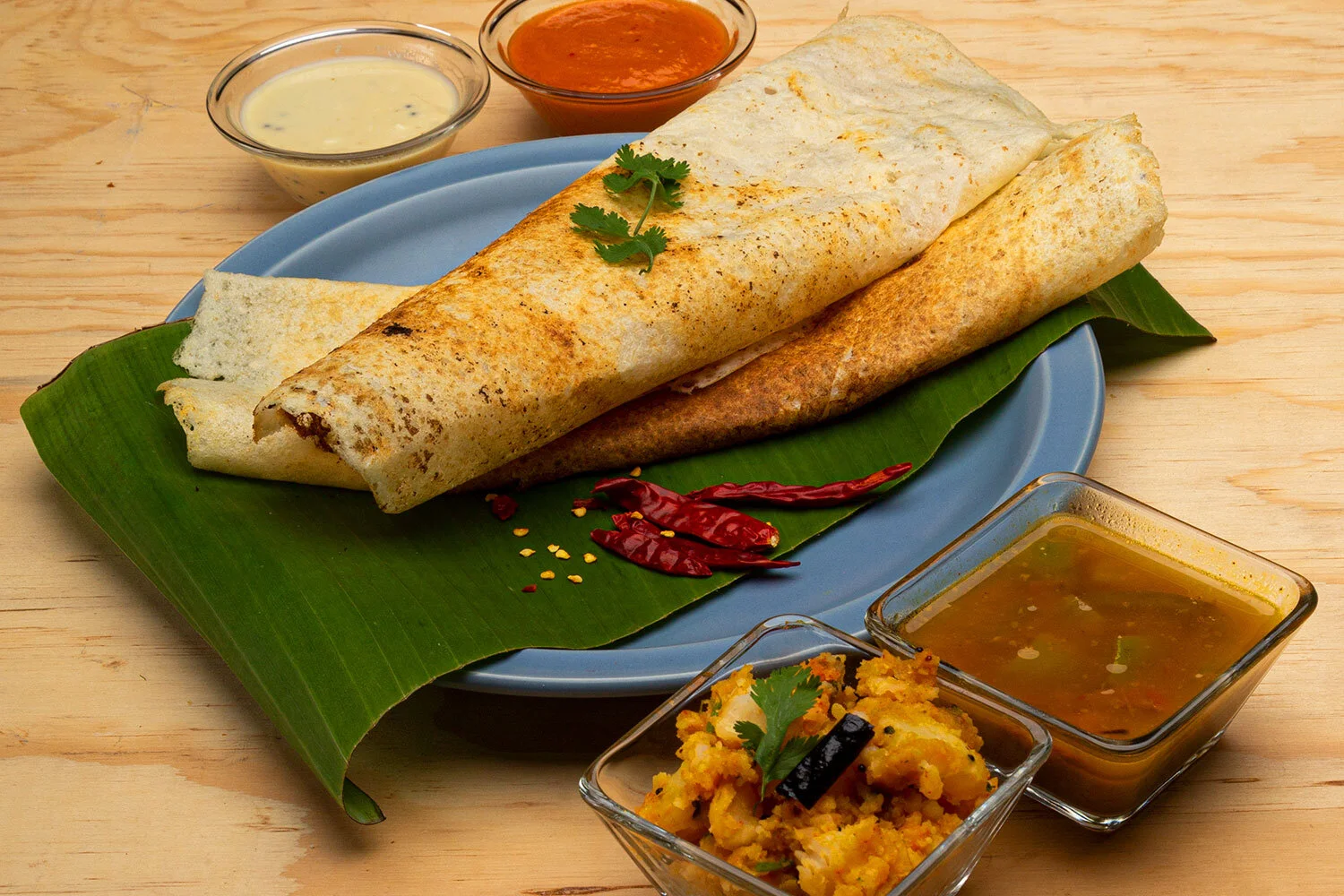Mendl Delicatessen Brings the Tastes of New York Home
Let me state outright that I’m the right person to be critiquing a New York-style Jewish delicatessen. I am a native New Yorker, the son of parents Jewish of culture, if not faith. This is the food with which I grew up. So there are memories - and baggage - when I eat it. It’s hard for me to stand back and judge fairly. In addition, we Jews have made an art of kvetching (complaining, in ordinary parlance). But I’ll try to be kind…
Mendl, Mexico City’s first and only true New York-style delicatessen, is a project remarkably well realized. It pays homage to the Eastern European/American traditions that we call Jewish deli. Iconic dishes are lovingly evoked, not painstakingly reproduced. Considering that the young creative team in the kitchen could not have known those original traditions, they are indeed doing a remarkable job.
A typical deli c 1930
Urban American Jewish delis are a historical phenomenon. They were ubiquitous in the Manhattan of my childhood—it seemed there was one on every block. Some were neighborhood shops that offered roast chickens twirling temptingly in the window, sandwiches piled high with pastrami, lox, tongue or liverwurst, prepared salads, pickles, rice pudding, black & white cookies, bagels, bialys and rye bread. The world-famous Zabar’s started this way, as did Russ & Daughters, both of which survived into the 21st century repackaging and marketing themselves to new generations. Back in my day, there were Kosher dairy restaurants, some vegetarian (such as the Famous Dairy restaurant on 72nd Street and Ratner’s on Delancey) and others that specialized in fish (like the aforementioned Russ & Daughters and the still extant Barney Greengrass). Every corner drug store had a soda fountain and lunch counter that served such Jewish foods as pastrami and corned beef on rye, and nothing with the dreaded mayonnaise. Full-service, sit-down delicatessen restaurants were numerous. There was Reuben’s (gone before my time), the Stage and nearby Carnegie Delis, both lost to avaricious real estate speculating, Wolfe’s on 57th Street and Katz’s, now as enshrined as the Taj Mahal. Many lesser-known, but equally beloved neighborhood establishments thrived. All these places shared a common thread: they were staffed by churlish waiters and waitresses who acted as if the customer were an annoyance. “You don’t WANT that, dahling!” a middle-aged waitress once admonished me when I tried to order hot borscht in summertime - it irked her to see me do it “wrong”. Sometimes they’d walk away before your order was finished, or toss the food at you as if they were feeding the seals in the Central Park Zoo.
Today most deli culture has disappeared in New York. Only a few survive in Manhattan and the surrounding boroughs, and a handful in other American cities. The original immigrants were Ashkenazi Jews who arrived in the late 19th and early 20th centuries from Russia, Germany, and other Eastern European countries. They brought their culinary traditions with them, but are now mostly gone to the Big Deli in the Sky. The first generation was comprised of picky devotees of deli food. Many in the second generation --my group--rejected it, and moved on to “world cuisine”. Now we are trying to take back and celebrate what’s left before it disappears completely.
Mexico’s relatively small but prominent Jewish community (approximately 67,000 at last count) is comprised of a large percentage of Sephardim (Jews of Southern European, Middle Eastern, and North African descent) whose culinary traditions differ from the Ashkenazi, who are the majority in American cities. Deli food, as we New Yorkers remember it, derives from Russian, Polish, German, and other Eastern European traditions. So Mendl is a bit of a surprise here as it sticks, for the most part, to the Ashkenazi lexicon.
Breads to go
Bubbe’s chopped liver, done with shmaltz
The menu at Mendl is a veritable list of deli ‘greatest hits’. Appetizers include the iconic bubbe-favorite Chopped Liver (chicken livers, sauteed with that favorite lubricant, shmaltz --aka chicken fat). I wish there were a bit more “chopped” in the liver as my grandmother did it so it could be spread. Here it comes rough, more like a French pâté de campagne. Not to kibitz too much, but on one occasion it lacked salt – which IS how my grandmother would have done it.
Correctly presented Lahtkes (potato pancakes), which are traditionally served around Hannukah, sport a properly bronzed crust housing a creamy interior. They are served, as protocol dictates, with sour cream (on the menu dignified as crème fraiche) and apple sauce. This is a winner.
Whitefish salad is normally made with a smoked freshwater “whitefish”; here trout is utilized. Traditionally spread on a bagel or rye bread. Mendl’s’ version, though well-seasoned, is chunky, and meant to be eaten with a fork. Again, I’d prefer a finer mince, so that the flavors are more evenly incorporated and spreading is possible. But I’m just noodging, not complaining.
Matzoh ball soup, another personal Proustian memory teaser, carries me back to the late Carnegie Deli. My father and I once met in the neighborhood to be fitted for the rental tuxedos required at my sister’s wedding, something that annoyed him no end. His mood had turned sour. To rectify the situation, I suggested that afterward we go to the nearby Carnegie for a bowl of matzoh ball soup. “That’s a GREAT idea!” he beamed. We went and spirits were raised. This was the last time I went to the Carnegie Deli, and the last time I went out with my father, so it became more than just a bowl of soup for me. Mendls’ version is classic, using good, rich chicken stock with a matzah ball that’s properly fluffy and well-seasoned, crowned by the requisite sprig of dill. It’s a mechayeh (blessing).
Matzoh ball soup
Mendl’s Borscht, defined as Ukrainian, is the earthy, hot version. It’s a gently diplomatic tribute to that currently suffering land. Meat-based with the addition of shredded cabbage and beets, fragrant with hints of aromatic spices, it is well balanced between sweet and sour. This one hits all the marks. I’d love to see the menu include a refreshing, vegetarian, cold beet borscht, lightened with sour cream and served in a glass. This was ubiquitous on old deli menus.
The chef cuts by hand (photo courtesy Mendl)
Pastrami has become a ‘thing’ in recent years, even here in Mexico. The best in the city was to be found at the late Mananá Deli (Full disclosure: I was co-owner of this business; ours was highly lauded). Mendl gives Mananá’s (and Katz’s for that matter) a run for the money. The brisket, brined for 2 weeks, then smoked and steamed, is falling-apart tender and succulent. It is hand cut, for a more satisfying texture, a style also reminiscent of Katz’s – most delis cut thin by machine. And it’s just perfect, piled high as a sandwich on rye. While Mendl’s bagels are admirably chewy, the rye bread is on the goyische side, a bit too light and airy for me. Heavy, dense breads are difficult to find in Mexico. Sad to say, they’re an endangered species in New York as well. Katz’s commercial rye bread is “shameful” according to my cousin Joel who recently paid a visit. The relatively “lite” version offered at Mendl, albeit house-made, is no surprise. It does have flavor, I’ll admit, but the flyaway texture leaves this NY Jew scratching his head.
The classic bagel & lox, perhaps the test of any good deli, is prize-worthy. Its shmear of cream cheese is generous, as is the portion of sliced salmon laid on with finesse in twisted folds, dressed with thinly sliced red onion and a few capers. House-cured and cold-smoked salmon is as good as it gets, oily, deep, and slightly sweet. I like the salmon cured with dill and am heartened that the chef has gotten a lead on fresh dill, because it’s not easy to find in Mexico. It’s a mitzvah.
The classic Bagel & Lox
The decor at Mendl is bright, airy in an early 60’s tropical retro-style that is in keeping with the food. It evokes a simpler time when straightforward food was there to comfort and embrace. I keep thinking I’m at Ratners. Or Miami c.1964 with my grandparents and the other old-timers.
The service provided by the enthusiastic young team does little to recall that of its cantankerous forebears, and that’s just as well. And as friendly as the staff may be, multi-tasking seems beyond their capacity, so special requests may go unheeded. But time and experience will improve the situation.
While prices may seem hefty, this food is expensive and time-consuming to prepare. You get what you pay for.
So I take my yarmulka off to Mendl, especially to Monserrat, the young chef who takes on this potentially burdensome and tradition-laden project with a fresh savoir-faire. Mendl Delicatessen is a reverent tribute to my heritage, and I am proud of this addition to our culinary scene. Mazel tov!
Fabulous salmon, ready to go…
Mendl Delicatessen
Citlatépetl 9 Hipódromo Condesa (see map)
Tel. 55 9347 9944
www.Mendl.mx
Open Daily, 8 a.m. - 6 p.m. (No reservations)


